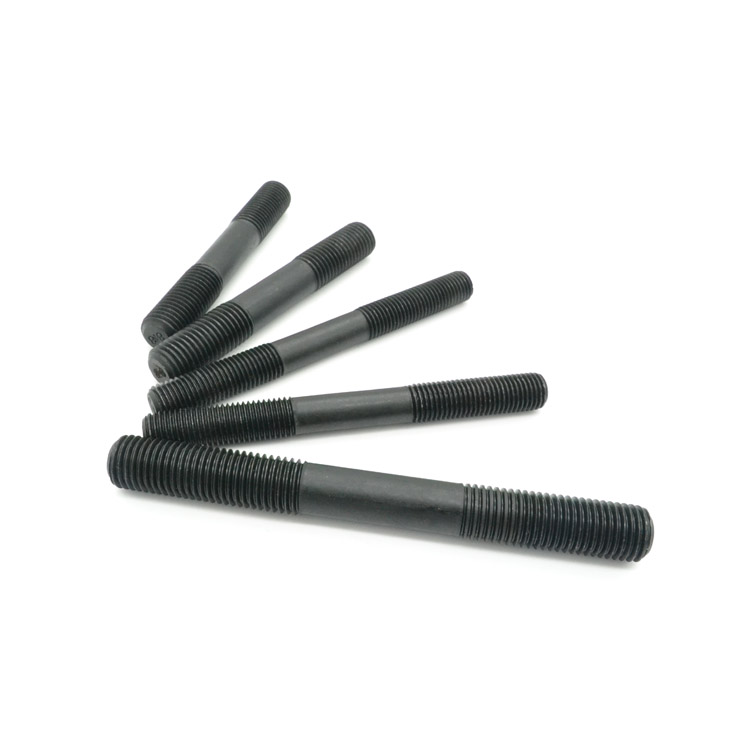DIN 6927 Flange Nuts Suppliers for Quality Fasteners and Competitive Pricing
Oct . 16, 2024 21:12 Back to list
DIN 6927 Flange Nuts Suppliers for Quality Fasteners and Competitive Pricing
The Rise of DIN 6927 Flange Nuts A Focus on Global Exporters
In the world of fasteners, the DIN 6927 flange nut has emerged as a vital component in various industries, including construction, automotive, and manufacturing. This unique fastener design combines a nut with a built-in flange that distributes load and provides a larger surface area for better grip and stability. As global demand for robust and reliable fastening options continues to grow, the role of exporters specializing in DIN 6927 flange nuts becomes increasingly significant.
Understanding DIN 6927 Flange Nuts
The DIN 6927 flange nut is characterized by its hexagonal shape and the flange at the bottom. This flange acts as a washer, reducing the likelihood of loosening due to vibration and ensuring a secure connection. Manufactured according to the standards set by the Deutsches Institut für Normung (DIN), these nuts are designed for use with bolts and screws to create strong, durable assemblies. They are commonly made from materials such as stainless steel, carbon steel, and nylon, allowing for use in diverse environments, whether subjected to harsh weather or high-stress situations.
The Industrial Applications
The versatility of DIN 6927 flange nuts makes them suitable for various applications. In the automotive industry, they are used in assembling parts where safety and structural integrity are paramount. Construction projects rely on these fasteners to secure beams and frameworks, while manufacturing processes benefit from their ease of installation and reliability.
Furthermore, as industries push for higher performance and safety standards, the demand for high-quality fasteners like DIN 6927 flange nuts has surged
. This increase prompts exporters to focus on providing premium products that meet international standards and specifications.The Role of Exporters
din6927 flange nuts exporters

Exporters of DIN 6927 flange nuts play a crucial role in ensuring that industries around the world have access to these essential components. They serve as intermediaries between manufacturers and the end-users, navigating the complexities of international trade. The best exporters not only supply the standard sizes and materials but also offer customization options to meet specific project requirements.
Leading exporters often maintain strong relationships with manufacturers to ensure a steady supply of high-quality products. They also keep abreast of global market trends, helping industries anticipate changes in demand. Shipping logistics, quality control, and compliance with international regulations are additional roles that these exporters undertake, making them integral to the supply chain.
Quality Assurance and Standards
Quality control is paramount when dealing with fasteners, particularly those used in critical applications. Reputable exporters adhere to strict international standards for quality assurance, such as ISO certifications. By sourcing DIN 6927 flange nuts from certified manufacturers, exporters can guarantee their clients receive products that have been rigorously tested for performance, durability, and safety.
Additionally, many exporters are now embracing advanced technologies to enhance their offerings. The use of automated systems for inventory management and quality control helps ensure products are delivered efficiently and meet customer expectations.
Conclusion
As industries around the globe continue to evolve, the demand for high-quality fastening solutions like DIN 6927 flange nuts is set to rise. Exporters play a pivotal role in this market, bridging the gap between manufacturers and consumers while ensuring compliance with international standards. By prioritizing quality, customization, and efficient logistics, these exporters are not only supporting the growth of various industries but also contributing to the overall advancement of engineering and construction practices worldwide. The future looks bright for DIN 6927 flange nuts and the network of exporters dedicated to supplying them.
Latest news
-
High-Quality Panel Stud Bolt Reliable Panel Stud Bolt Factory & Suppliers
NewsJul.08,2025
-
High-Precision Fine Thread Locknuts Manufacturer & Supplier Custom Solutions
NewsJul.08,2025
-
PH Imperial Stud Bolt – High Strength Fasteners from Leading Supplier & Factory
NewsJul.07,2025
-
High-Quality Allen Wrench Bolts Leading Factory, Company & Suppliers
NewsJul.07,2025
-
Wholesale Ball Stud Bolt - High Quality Supplier & Factory Price Reliable Wholesale Ball Stud Bolt Company
NewsJul.06,2025
-
High-Strength Alloy Bolts Manufacturer & Supplier Quality Alloy Fasteners Factory
NewsJul.06,2025
